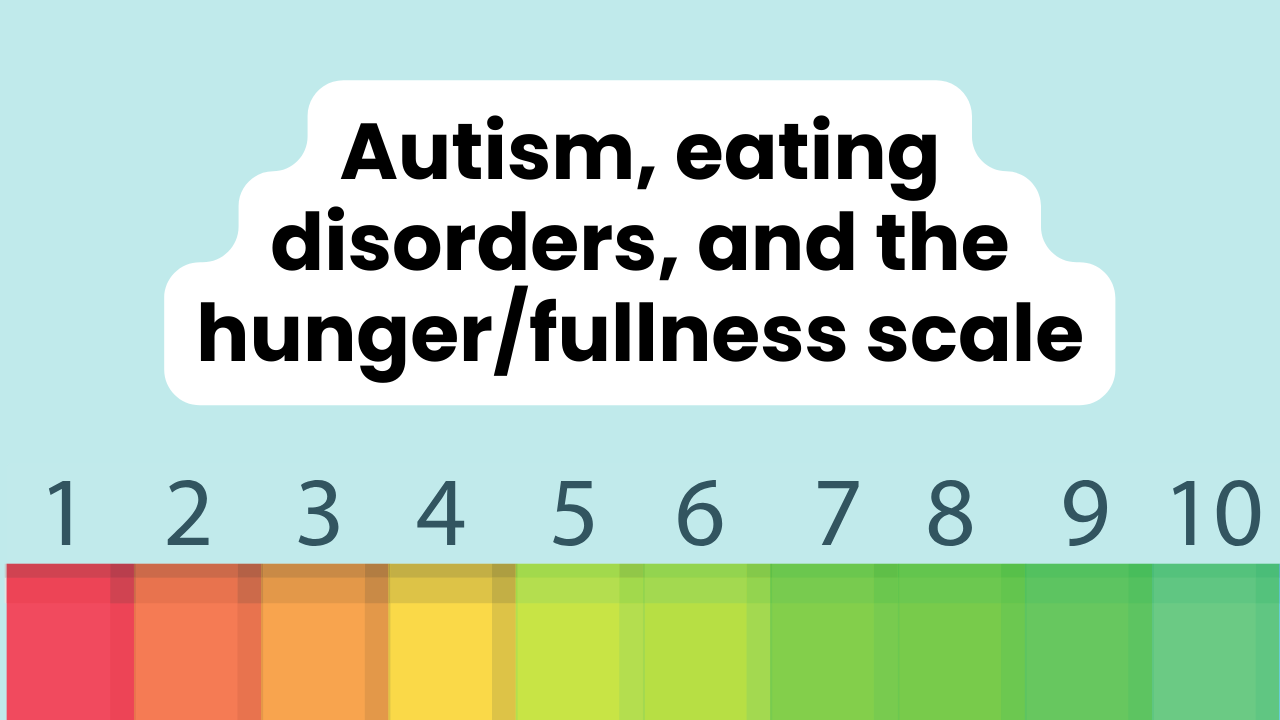Autism, eating disorders, and the hunger/fullness scale
Oct 07, 2023
One of THE most unhelpful things I was told when I was in treatment for my eating disorder was to “rate my hunger on a scale from 1-10.” In this post, I explain three reasons why this advice can be harmful for autistic people. Of course, I also share what HAS helped me eat intuitively as an autistic person so you can be inspired by my lived experience!
1. Autistic people often lack interoceptive awareness
Interoception is the sense through which we monitor the inner state of our body. Our interoceptive awareness helps us recognize what we’re feeling, including whether we’re hungry, thirsty, full, need to pee, etc. Autistic people interpret hunger cues differently, meaning a standardized number scale cannot truly reflect the depth and uniqueness of our cues.
2. Autistic people are often perfectionists
À la Goldilocks, we want to get things “just right.” Use of the hunger/fullness scale can put pressure on us to always reach a certain number on the scale, which doesn’t allow space for the normal fluctuations of life. Food freedom isn’t about always eating until you’re “perfectly” satisfied or “perfectly” full. It’s about eating in a way that brings you joy and contentment both physically AND mentally. Overeating, eating food that’s “just ok,” and discovering what makes your body feel best is all part of the process.
3. Autistic people are often in a state of fight-or-flight mode
The state of your nervous system has a HUGE impact on how you experience hunger and fullness. Because the world was not built for autistic individuals, we are often on hyper-alert mode, constantly scanning for signs of danger. When we are in this state, hunger cues are shut off. Why? From an evolutionary perspective, they could “distract” us from our main focus: escaping danger!
What might be a more helpful approach to eating intuitively as an autistic person? Personally, I take a very logical approach. In all areas of my life, I do things in a planned and structured way – so why wouldn’t this also be the case for food? Want to learn more about the connection between (extreme) hunger, fullness, and autism? Grab your copy of my book How to Beat Extreme Hunger!



